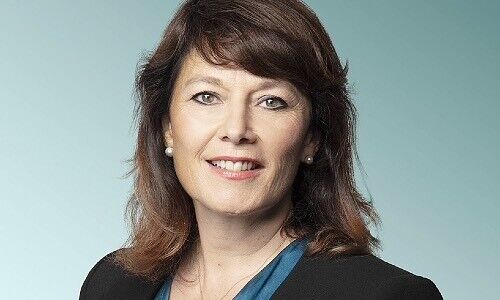Fund manager Asteria wants to help combat climate change and make a favorable social impact. CEO Katja Coudray tells finews.com why banks aren't particularly interesting investments.
Katja Coudray, as soon as Asteria won regulatory approval last year, you took over Obviam during the pandemic. Will this lead to job cuts?
We will not cut any jobs – on the contrary, we're expanding and prepared to create new jobs.
Obviam held a key impact investment mandate for Sifem, the Swiss government's development financing arm. What happens after the merger?
Sifem and the government were informed of the change in ownership at Obviam. Nevertheless, the contract between Sifem and Obviam expires mid-2022. The granting of a new contract will be subject to a public tender.
So you might lose the account – but Obviam's client money is almost exclusively from this mandate, isn't it?
We and Obviam will take part in the tender and try to win the trust of Sifem again so that the contract can be extended. It is accurate that Sifem makes for the largest share of Obviam's volume.
If you can keep Sifem, Asteria and Obviam would manage more than $550 million. Is your target still to lift volume to several billion over the mid-term?
We've just begun with the climate impact strategy in December – our offering is still quite young.
«Targeting billions in a first step»
We set up our funds so that they are quickly scalable and the investment process is considerably supported by technology. This should help us to reach a wider audience – I am factoring in $2.2 billion to $3.3 billion in a first step.
Isn't that a major problem for impact investments: too little supply versus huge demand?
It's in our DNA to solve this problem and to begin as a start-up is a huge advantage. It is absolutely possible to generate impact with equity investments.
Do you invest in banks?
They don't have any influence in terms of our criteria and so they're not part of our investment universe. For risk management reasons we can only have a very limited engagement of companies with neutral impact, which includes banks.
Bank executives won't like to hear that – they've hitched their fortunes to an ESG agenda.
Banks are impact-neutral for us. Their products and services on their own don't help lower CO2 emissions. This isn't a criticism – it's simply how our investment strategy is designed.
Many banks have signed up for the U.N.'s sustainable development goals.
Yes, but ESG criteria dictate how a company behaves towards the environment, society, and in terms of governance.
«Companies helping create a decarbonized future»
Against this backdrop, a mining company which burdens the environment can still have a very good ESG rating. The impact method measures the direct effect on the climate of a company's activities – in this context, the impact of banking services is neutral.
Then ESG would be window-dressing?
No, but it's a different approach. ESG requires transparency about how companies conduct their business. Don't get me wrong: it's contributed a lot to the sustainability of the economy. But in impact investing, we're looking for firms which are actively involved in creating a decarbonized future with their products and technology.
Asteria is targeting institutional investors and financial intermediaries. Why not sell its impact funds on a digital platform like the fintech start-up Yova does?
Of course we also sell funds that are targeted to retail investors, with lower fees and smaller minimum investments. And we are addressing fintechs directly with these products.
«If things go to plan, foreign expansion next year»
For example, I can imagine that we'll sell the funds via Reyl's digital banking subsidiary Alpian when it commences business. As for ourselves, we're sticking to a business-to-business distribution strategy.
Reyl is the owner of Asteria – and sold a majority stake to Italy's Intesa Sanpaolo last year. Can you count on the Swiss bank's new owner?
Absolutely. Banca Intesa Sanpaolo itself could soon invest in our funds. I can also imagine our expansion outside of Switzerland starting in Italy – Intesa has an incredibly strong distribution network there. France and Germany are also interesting markets for us.
When will that happen?
If everything goes to plan, next year. At the moment we're happy if we can satisfy client needs in the German-speaking part of Switzerland. With Dominique Sekyra, we have our own distribution expert in Zurich.
Katia Coudray has run Asteria Investment Managers since its launch through Reyl Group in 2019. She previously oversaw asset management at Geneva's Syz Group and before that spent ten years at Union Bancaire Privée. She is also a board director at Swiss asset manager GAM.



































